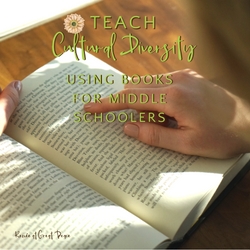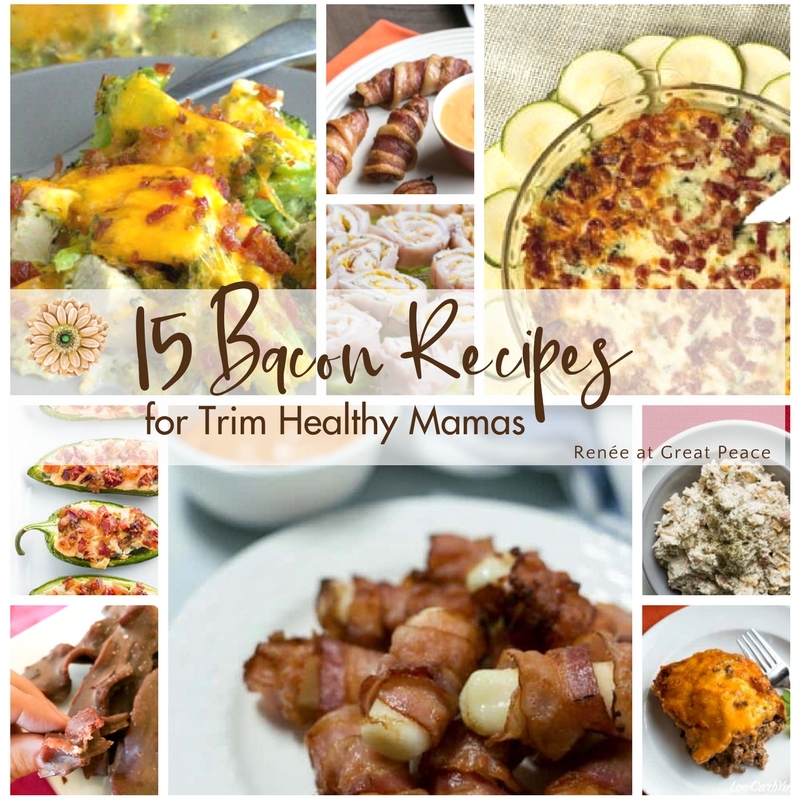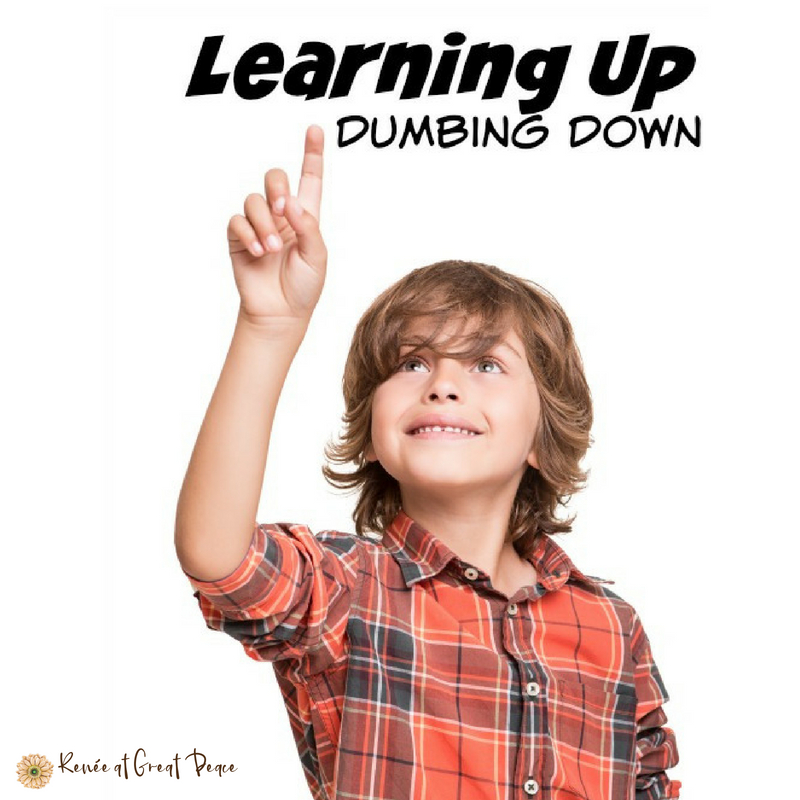
Homeschooling with Free Unit Studies
Have you gotten to a place where you are finding it difficult to keep up with the rigidity of a homeschooling text book? Perhaps the suggested schedule has begun to rule your day and your week. Maybe your kids are just struggling to understand it, or keep up with the requirements of it. It could, perhaps, be that those texts are based on a traditional school method. And, most often, that method doesn’t work in a homeschooling setting. But have no fear! It’s OK to switch it up, even mid-year, and do homeschooling unit studies instead.
What do you do when the curriculum isn’t working and you don’t have anything in the budget for new materials? The answer is simpler than you might think. It’s Unit Studies! You might actually find that such unit studies are perfect for your family even as you prepare for next year.
This post contains affiliate ad links to products and/or services which may be purchased at external sites.
What are Unit Studies?
A unit study is exactly that, a unit of study. Generally, it’s a topical study that encompasses as many subjects of learning as possible. Ideally, you will want to incorporate all subject areas of learning into the one topic.
Basics of Unit Studies
Since unit studies incorporate subject areas into a cohesive topic it’s easy to cover a lot of subjects in a short amount of time. A unit can easily guide the student in learning through research (investigate), incorporating historical study through literature, exploring science and math that relates naturally within the topic, and help them to grow their vocabulary through actual study rather than through a grouping of words unrelated to any other reference in their lessons.
In the end you will want your student to be able to demonstrate understanding in some way. While this can be done in written form, it could also be demonstrated through journaling, speech, creative art or musical adaptation. I’ve also used toys to allow my son to demonstrate learning using LEGO Bricks to build a replica of an historical ziggurat, a Bible story, and even building mathematical fractions. Having your child create a diorama, or cook a meal based upon a book read can also serve as an active demonstration of lessons learned.
Pros and Cons of Using Unit Studies
Over on my Facebook Page a few weeks ago, I asked my followers to share their pros and cons of utilizing unit studies, I’ve gathered their responses as well as some of my own and am sharing with you both the pros and cons of unit study learning.
Pros
- Unit Studies can be used with multiple children of a variety of ages. You teach one lesson and then activities are geared to each child’s age appropriate skill level.
- Unit Studies allow students to study as in-depth as they want this is especially great for gifted students who often “go down the rabbit hole.”
- Many unit studies can be found for free or very low-cost on the internet.
- You can create your own unit study to meet the interest of your own children.
- Because so many subjects are incorporated into one general theme, learning happens in a very organic manner.
- Unit studies are a great way to feed the individual interest of child.
- A unit study can be a fun and creative way to learn a topic.
Cons
- A unit study may require more prep work for the homeschool teacher. While there are many free or low-cost unit studies online, tweaking them or finding just the right one can be time-consuming and when all else fails and you create your own it can take even more time. Additionally, because you are educating outside the box, gathering supplies and resources ahead of time whether using a pre-made unit study or your own can take additional time. Planning ahead can be key to unit study success, or else you may find yourself making late night trips to the craft store or downloading Kindle books to meet your needs.
- Mom’s can stress a bit that full learning is met. Some may fear there will be “gaps” in learning core subjects or that the child will get “behind”. This is especially true of those who are seeking to meet set standards of traditionally based lessons.
- While many unit studies are free, supplies needed to complete activities and/or field trips might be more costly in the long run, especially for families with multiple children.
Maybe your thinking, ‘O.k., this is sounds good, now where do I get unit studies?’ In the digital internet age, unit studies abound. There are many resources online for units, Shining Dawn Books, Amanda Bennet, Konos, Five in a Row and Currclick (they have some freebies too) are all great resources for purchasing Unit studies. Yet, there are many options that are both excellent and entirely free.
Eleven Excellent Resources for FREE Unit Studies
- 123 Homeschool 4 Me
- Education Possible
- Eva Varga
- Free Homeschool Deals
- Homeschool Giveaways
- Homeschool Helper Online
- Homeschool Share
- Mama’s Learning Corner
- Our Journey Westward
- The Homeschool Mom
- Tina’s Dynamic Homeschool Plus

50 Free Unit Studies
- Chroncicles of Narnia Free Resources Unit
- Magic Tree House Unit Studies (Lesson Plans for each book) by Magic Tree House Classroom AdventuresProgram
- Hibernation Unit Study from Year Round Homeschooling
- Bird Unit Study Resources from Kathy’s Cluttered Mind
- Dinosaur Unit for Elementary from 123 Homeschool 4 Me
- Hibernation Unit Study from Year Round Homeschooling
- Discover the 13 Colonies from Education Possible
- Little House Unit Study and Lapbook from Homeschool Share
- Slavery and Civil War Unit Study from Our Journey Westward
- Medieval Unit Study from 123 Homeschool 4 Me
- Native American Unit Study from Homeschool Helper Online
- American Revolution Unit Study from Homeschool Helper Online
- Archaeology and the Bible from Oklahoma Homeschool
- Black History Month: Goin’ Someplace Special from Homeschool Share
- Chinese New Year: China Unit from Adventures in Mommydom
- President’s Day Mini Unit Study from Today’s Frugal Homeschool Mom
- Jamestown Unit Study from Harrington Harmonies
- Francis Scott Key from Mama’s Learning Corner
- Genealogy with Kids from Eva Varga
- Pirates Unit Study from The Homeschool Mom
- Amphibians, Reptiles and Fish from Hub Pages
- Astronauts, Rockets and Spaceships from Hub Pages
- Bridges from Hub Pages
- Baking & Cooking 1 and Baking & Cooking 2 from Crosswalk
- Discover the 13 Colonies from Education Possible
- Little House Unit Study and Lapbook from Homeschool Share
- Slavery and Civil War Unit Study from Our Journey Westward
- Medieval Unit Study from 123 Homeschool 4 Me
- Native American Unit Study from Homeschool Helper Online
- American Revolution Unit Study from Homeschool Helper Online
- Archaeology and the Bible from Oklahoma Homeschool
- Jamestown Unit Study from Harrington Harmonies
- Francis Scott Key from Mama’s Learning Corner
- Genealogy with Kids from Eva Varga
- Pirates Unit Study from The Homeschool Mom
- Amphibians, Reptiles and Fish from Hub Pages
- Astronauts, Rockets and Spaceships from Hub Pages
- Bridges from Hub Pages
- Spring and Gardening Unit Studies from In All You Do
- Water Cycle Lapbook from hHomeschool Helper Online
- Baking & Cooking 1 and Baking & Cooking 2 from Crosswalk
- Pi Day from Homeschool Mom
- Ultimate Guide to Studying Plants & Flowers from Mama’s Learning Corner
- Insects Unit Study from Gift of Curiosity
- Hot Air Balloon Unit from Homeschool Helper Online
- War Between the States by Tina’s Dynamic Homeschool Plus
- Elections A to Z Unit Study by The Homeschool Mom
- Kindergarten Literature Based Unit Study by 1+1+1=1
- Asia Unit by Lasting Thumbprints
- Human Body Unit Study (A collection of studies of the Body Systems) by Home Grown Hearts Academy
Basics of Building Your Own Unit Studies
Decide on a Topic
Yes, there are millions if not trillions of topics in the world. So narrowing down to a single topic can be tough, but not impossible. I think there are two basic ways to choose your topics.
- The first is based upon the interest of the child and/or the family. A family that is fond of the arts might choose a topic related to the arts, such as, the opera, a genre of art history, a specific composer and/or their works, a specific artist study, and so on. A child who has a seeming talent in engineering might like to do a unit study on the engineering of bridges, or the architect of famous buildings, or perhaps the engineering of a motor or aeronautical vehicle. Interest led unit studies can be very rewarding for both the child and parent because you will quickly see excitement and enthusiasm in the child as they study.
- The second is based upon a parent/teacher directed topical study. In that I mean a parent chooses the topic based upon an area of learning in which they feel the child needs to gain understanding. Perhaps it is a topic of the US government and how it functions, or perhaps how the US banking system operates, or maybe the basics of home plumbing. It could be an expansion study of an area already touched upon that you want to offer your child more opportunity to learn about. For example you may be using a text curriculum about US History and choose to do a side unit study of the names and geography of the states.
Remember that ANY topic can become a unit study.
Set a Goal
Unit studies can quickly become overwhelming because there really is no limit to how much one can learn on any given topic. To manage the unit set a goal. It can be a simple time goal for how long you will spend on the unit, or it can be an end goal of what areas of the unit you will want your student to gain knowledge of or show mastery in within a set period of time. You may set a goal of a final project which will show a culmination of the unit studied. This is often where lapbooks come into play and serve as the project that shows what/how a child has learned.
Make a Plan
It’s important to have a plan going into the unit study. Determine what subjects you can cover within the topic given. Most likely all subjects can be incorporated with a little diligent research on your part. A good way to organize your plan is to use a mind web surrounding a central theme, then writing possible sub-topics to go along with the theme, finally organizing those sub-topics by general educational fields of study.
Once you have your overall subject plan, divide that into a workable schedule by weekly goals and daily goals.
Collect Resources
Next you will need to gather your resources for providing or directing your student in the unit study. In my opinion a good unit study has a variety of types of resources because no two children are alike and most need a variety of ways to learn. In addition everyone gets bored doing the same thing over and over, even moms, so opening the learning world to variation offers children a way to explore and expand their mind and discover what works best for them.
Types of Resources:
- Books: You will want a variety of books from library books, Amazon.com books, Kindle books or other digital books, books for literature reading, books for research, books about art, books for fun, books with amazing pictures, books for topic related math, books that bring scripture study into the unit and books to inspire.
- Videos: You-Tube videos are an excellent resource for educational videos, check your local library, research videos for your specific topic via a search engine, using words like; (your topic) + video + educational. Videos from curriculum companies are often available for purchase separate from the curriculum and can make an excellent resources for unit studies. Check with your Netflix, Amazon Prime, Hulu or other movie subscription sources for educational videos related to your topic.
- Maps: Most topics can incorporate geographical study. For example when doing a unit study on LEGO Bricks you can do a geographical study of the country of Denmark, home of the LEGO Manufacturing plant and corporation. When doing a study of the ballet you can do a geographical study of countries where ballet was made popular, such as Russia or Italy. When doing a unit study of Ancient Rome it would be natural to do a map study of all of the lands contained within the Roman Empire.
Gather maps that are relevant to your topical study, find additional research and/or study material which can help guide the student in the geographical lesson. - Math: Determine how math plays a role in your topical study. Perhaps its learning to measure an acre when studying farming techniques or it’s calculating the distance of a star in an astronomy study, or perhaps it would be learning fractions while studying musical theory and the flow of musical measures. The point is with a little thought, research and creativity most topics can incorporate mathematical studies. Gather any needed supplies that will go along with a math study, like yard sticks, tape measures, calculators, a protractor and yes, even pencil and paper.
- National and Local Resources: There are a wealth of resources available for free from your national, state and local governments. These resources extend far beyond government and include history, industry, community services, images, museums, parks, tours and more. Think outside the box a bit and perhaps call your local historical society, civic organizations, chamber of commerce, or hospitals and ask what services they provide for community and/or educational awareness. You might be very surprised.
- Word Lists: Put together a variety of word lists related to the unit, these can be taken from literature, research, related science, math or Bible studies. Let the word lists serve as spelling and/or vocabulary studies. These word lists can be chosen from the natural curiosity of the child or by pre-selecting before the unit study begins. For my son it’s natural for him to come to a word and then ask “Mom what does this mean?” Those are the words that I pull for vocabulary studies.
- Local Colleges and Universities: Often colleges and universities offer a wide variety of educational opportunities to the community and students. Call ahead and ask, check their websites for local events, educational events or events for children. Check also with individual fields of study within a university, for example the agricultural department of a university might offer tours of their dairy cattle, or eggs for hatching, or an opportunity to help with spring planting. Other fields of study might offer STEM opportunities and/or robotics challenges for elementary or high school students.
- Field Trip Ideas: Consider your topic carefully and then do a bit of research to find field trip opportunities in your area. Some ideas include; museums, zoos, historical sites, manufacturing plants, theaters, art galleries, national resources,
- Lapbooks: Because lapbooks are a good way to sum up what is learned they can serve as a great way to round out a unit with a final project. You can find a lapbook already created via a variety of online blogs and resource pages related to your topic or you can find free lapbook blank mini-books and create your own.
These are just a few of the types of resource options available to include in a unit study. You are really only limited by your imagination. One thing to note, you may want to consider your field trip options and the time of year you plan a unit study. Spring planting can only happen in the spring, zoo trips might be better if they aren’t in the winter time (unless you are going for a specific study). Coordinate your unit study with available outside field trip and community resources ahead of time so you aren’t scrambling at the last-minute to find something to do.
Create your Unit Study
This particular area isn’t wholly necessary. Creating working pages and/or materials can be either a hindrance to a completed unit study or can serve as a simple guide to the student. These pages do not have to be fancy and they don’t have to be or should be worksheets for each and every point learned in a lesson.
Simply typing up a to do list and/or a pdf with links you want your child to research might be just the thing to keep your child motivated. They might be a few questions regarding a sub-topic with space for your child to draw or write a few sentences about what they have learned.
Notebooking pages are an excellent way for your child to create what they’ve learned in a concise and cohesive way and there are a variety of resources available for notebooking pages or you can have your child create their own by utilizing a simple notebook. Allowing your child to draw or write what they are learning in their own way will truly serve to allow both their creativity regarding the topic and their knowledge of the topic to show.
These Supplies Can Help you Manage Your Unit Studies
Grab these supplies for just $1 from Dollar Tree using the links below.
Binders make it easy to store unit studies in one convenient location.
If you have younger children combining unit studies with lapbooking makes it easy for students to document their work. Which means, folders are a must-have to keep on hand for homeschooling unit studies. Even if you don’t do lapbooking, file folders can keep all the various parts of a unit organized until ready to use.
I think letting kids write notes as they go through the unit is a good idea. Then you can hole-punch a corner and
Expand those unit studies even further by having your students prepare a presentation to give to the whole family.
- Copy paper
Of course when grabbing units from online sources, you’ll want plenty of copy paper on hand to print the parts you need to utilize.
How to Implement a Unit Study
Once you have gathered, collected, researched, created and chosen how you want the unit study to proceed you can begin the study. Whether you allow for a natural flow for the child’s benefit of mastery or you keep to a relative schedule is up to you, for me I find if my son is interested in the topic he tends to fully dive in and learn to completion and if he isn’t interested he’ll just study in a cursory way until I choose an ending point. It’s up to you how you and your family will want to proceed with each unit of study.
Five Unit Study Planners
- Donna Young Unit Study Planner
- FREE Unit Study Planner from Free Homeschool Deals
- Free Unit Study Planner from Home Grown Hearts Academy
- Free Unit Study Planner from Upside Down Homeschooling
- Unit Study Daily Planner from Heart of Wisdom
Some unit studies align well with national holiday observances, birthdays or historical events. There are many ways to structure your unit study schedule, it’s best to do what works for your family.
But wait! What about the feeling of being overwhelmed by putting together a dynamic unit study? Yes, admittedly it can be overwhelming, some families like to scatter units throughout the year to accompany a complete curriculum. Doing so allows you to take a break in traditional learning for more hands-on creative learning. Other families choose to use unit studies exclusively and spread out the unit over a longer period of time. The best way to approach any unit or homeschooling material is to remain flexible, willing to adapt to whatever your family needs and circumstances are.
So, are you ready to begin a journey into unit study learning? Which study sounds most appealing to you?
Visit the iHomeschool Network’s Ultimate Guides
for even more great Ultimate posts.
You May Also Enjoy
- Shark Learning Resources
- 10 Resources for Finding Fine Arts to Explore
- 25 Resources for Awesome Free Homeschooling
- 31 Music Unit Studies & More Resources for Homeschool










8 Comments
Misty
Thank you for featuring Selena’s Hibernation Unit Study from Year Round Homeschooling! 🙂 Blessings!
Misty recently posted…Fun with Nouns and Verbs
Renee Aleshire Brown
You are so welcome. 🙂 Blessings to you as well.
Diane
Wow Renee, you put a lot of work into this post! Thanks for all the great info and resources.
Renee Aleshire Brown
You are so welcome Diane. I hope that you find it very useful.
Jo
Wow, what a great resource! I’ll be saving this for future use.
Thanks for including me in your list of free unit studies!
Jo recently posted…When Homeschooling Feels Like a Burden: Advice from Real Moms
Renee Aleshire Brown
So glad you like it. Hope it will be a great resource for you and your readers.
Leah
I love your blog. This massive list of unit studies is really going to come in handy next year. We’ve been homeschooling since 2009 and I have grown to love this alternative mode of education. Field trips are always fun. Unit studies are my go to tool to use with the children.
Renee
Leah,
You made me tear up! Thank you so much for the encouragement. It’s great to hear from readers who find content here to be beneficial! <3